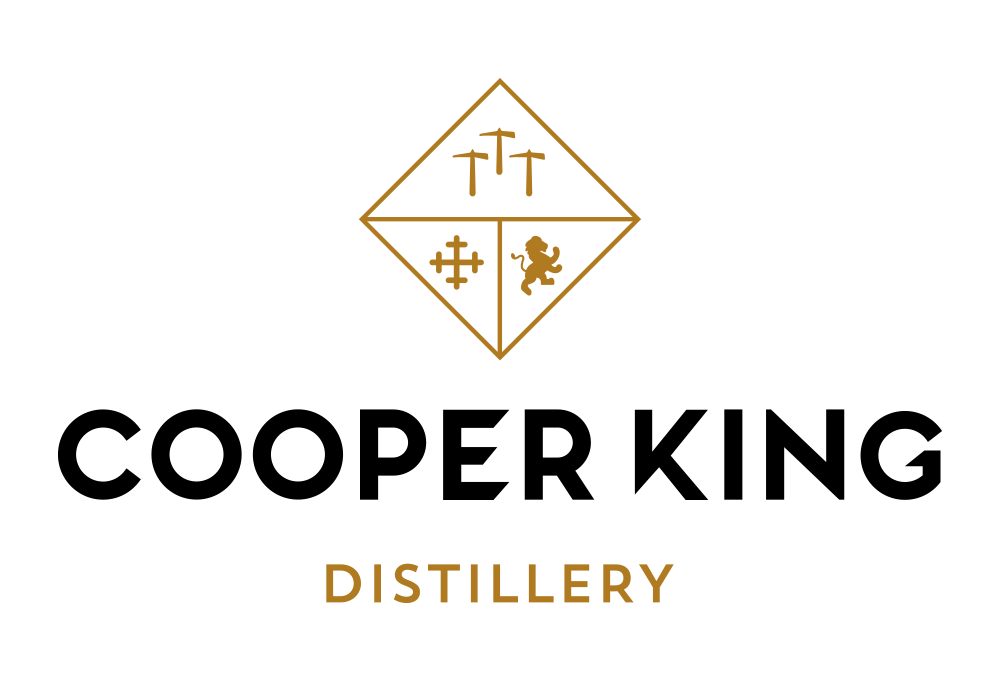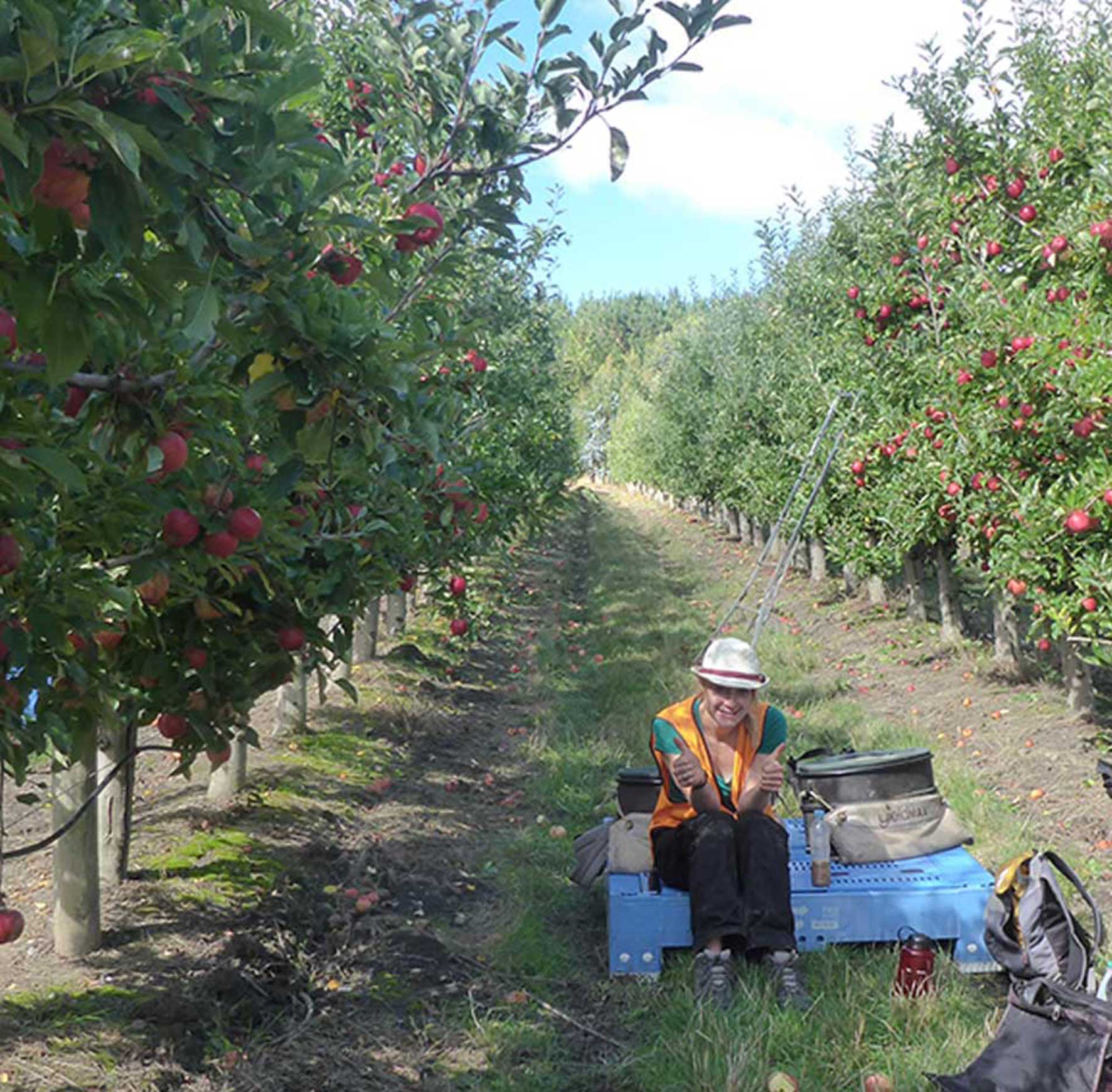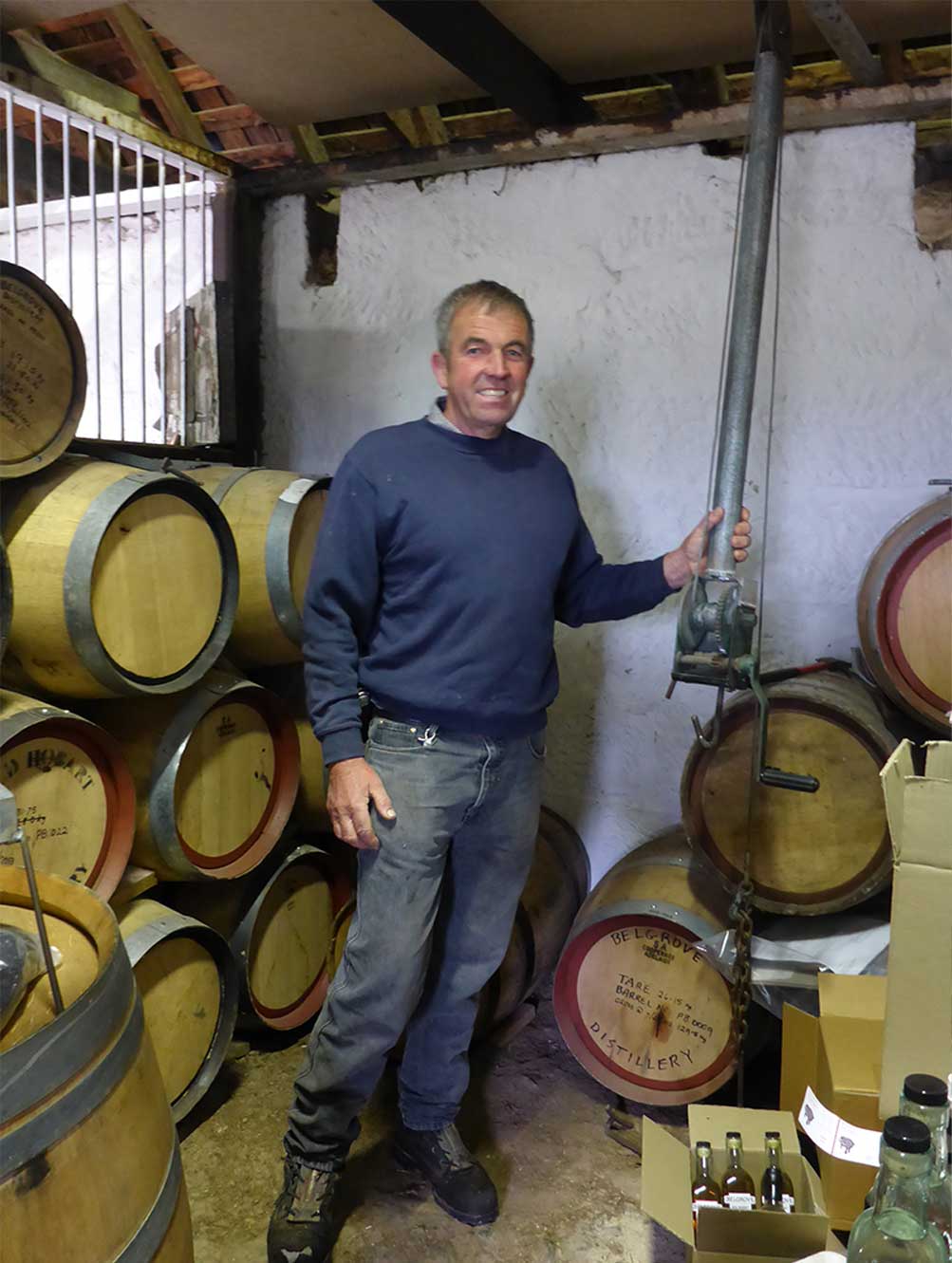Where It All Began
Leaving our respective careers in the UK to travel around Australia for a couple of years was the best decision we ever made. It gave us the freedom to connect with our adventurous sides, time to explore what we really wanted out of life, and the courage to follow through our new-found vision – setting up an English distillery. There is a definite have-a-go attitude in Australia that we found infectious. However, it took the best part of two years to convince my parents that Chris and I were actually serious about getting into the distilling business.
We Weren’t Thriving at the Nine-To-Five
We both loved aspects of our respective professions and had studied for many years to get there, though neither of us were finding our work particularly satisfying. Chris was an architect working long hours in a city-centre practice and was not enjoying the miserable Leeds to Manchester train commute. I worked for Leeds University and was thoroughly worn out from a four-year long PhD in biomedical science. We had saved some money over this time, so we could have put a deposit on a house, progressed with our careers and started a family, but we thought - sod that, let’s have an adventure while we’re still young! So, we saved up more hard-earned pennies and headed to Australia with backpacks full of sun cream and a ukulele.
Tasmania was our first destination thanks to our friend Tom (a serial world traveller), who had excited our imaginations with stories of breath-taking wilderness and world-class food and wine, and that’s exactly what we found. Needing to complete several months of harvest work to extend our visas, we moved around orchards sporadically earning dollars and met a variety of weird and wonderful people from all walks of life. Days picking apples were long and not mentally taxing, so we passed the time dreaming up alternative careers and business ideas.
Swapping the Daily Grind For a Daily Dram
One day in early April 2014 we got wind of Sullivans Cove winning World’s Best Single Malt Whisky; the first time for a non-Scottish or Japanese distillery. This was big news in the whisky world. An opportunistic Chris, keen to venture out of the orchards for a while, contacted Master of Malt whom he had done some freelance design for in the past and offered to visit the distillery to take some photos for them, seeing as we were close by. They jumped at the chance and had us visit all operational distilleries on a fact-finding mission which was to become an 8-part blog series on Tasmanian whisky. We loved whisky ever since our first trip to Edinburgh aged 20, so this was a once-in-a-lifetime opportunity to learn more about such an intriguing drink.
In-between stints of apple-picking and living in a tiny shipping container with three German back-packers (a story for another time), we headed off to each distillery on an olfactory journey of discovery. What we found was simply astounding: small and innovative operations run by passionate people making exceptional whisky by hand. The whiskies were unlike any we’d drank before – they had a unique character which could only be described as Tasmanian. We tried every whisky and spirit going and quizzed the distillers on all aspects of their production. We soon became hooked on Tassie whisky; we were captivated by the makers and their inspiring stories.
One such maker was Peter Bignell at Belgrove Distillery, a farmer-turned-distiller who grows his own rye and malts, mashes and distils himself in his home-made copper pot still that runs on biodiesel (that he also makes himself). Peter’s rye whisky is super green; it’s made from local ingredients using sustainable fuel and harvested rain water and was recently stocked in the Sydney pop-up of one of the world’s best restaurants, Noma.
At another Tassie distillery we discovered that one of the distillers had applied for the job while backpacking around Australia. He knew little about whisky but quickly learnt on the job. This got me thinking. I had considered brewing or distilling as alternative science-related careers post-PhD (there is a lot of science in beer and whisky), but had ruled them out because of the need for formal brewing degrees or years of industry experience, which I couldn’t realistically obtain. Hearing about a backpacker making Jim Murray’s then-favourite whisky really fired up my engine.
That evening, over yet another whisky, we joked about how amazing it would be to start our own English distillery. It was a crazy idea, but the more we drank, the better it sounded and soon we were discussing production methods, cask sources and yeast strains. That night, the ball was set in motion for a whirlwind distilling dream that has now snowballed into reality.
For the next two years and while still abroad, we educated ourselves on every aspect of distillation and starting a business from scratch; we sought technical training, enrolled on business and accounting courses, tasted hundreds of whiskies and importantly, trained our noses. We received expert teaching courtesy of Bill Lark (‘the godfather of Australian whisky’) and Dean Jackson at the Redlands Distillery School. Our life savings became our distillery fund. Returning to my hometown of York, England at the start of 2016, we hit the ground running and continued our learning, training and tasting, and even self-built the distillery. Our first ever product, Cooper King Dry Gin, launched on 22nd May 2018, and we start filling whisky casks in autumn 2018.
Bringing the Ethos Back Home
Flavour
First and foremost, our spirit must be exceptional. We know we can achieve this with a modest start-up budget. Overeem’s Port and Sherry Cask Finish whiskies were the best whiskies we’d tasted at the time and were made in Casey Overeem’s garage (before production was handed over to Lark Distillery), and the business was a family affair. Most of the whiskies we sampled were from distilleries a fraction of the size of bigger well-known distilleries and yet the spirit was complex, rich and characterful.
Honesty
For us, supping a drink in the very place where it was made, talking to the person who made it and knowing exactly what’s gone into it, is the dog’s bollocks. Inspired by the brilliant visitor experiences, tasting tours and cellar doors of small Tassie distilleries, we are set on opening our distillery’s doors to the public. If you’re going to dedicate time and resources to sourcing premium ingredients and labouring over the process to make an honest and enjoyable spirit, then you want your friends, family and customers to witness that dedication and passion for themselves. As a small producer, you want to prove to them that all the phrases you use in your marketing – like ‘craft’ and ‘small batch’ – are genuine and not conjured up by a branding agency because they’re fashionable at the time.
Camaraderie
The most profound element of the Tasmanian whisky industry was the camaraderie between distilleries. Sharing information, suppliers, distributors and marketing was commonplace and the Tasmanian Whisky Producers’ Association was set up to formally unite the industry. This unity has driven the success of the industry and increased global demand for their whiskies. With 24 distilleries now producing whisky in England, quality and unity are important if we are to be recognised as world-class producers alongside our Scottish neighbours.
Sustainability
Reusing and recycling resources, reducing waste and using local materials and green energy is a top priority for us. Peter Bignell of Belgrove Distillery helped us to understand that you can create a premium whisky that doesn’t use unnecessary resources. This topic deserves attention, so we’ll cover more details in a dedicated blog post in the future.
The Future's Bright
We worked our socks off whilst away at a plethora of jobs. Thanks to this and some pretty strict budgeting, we managed to arm ourselves with yet more distilling know-how by tagging on research trips to distilleries in New Zealand, Japan and Austria before returning home. From leaving our old careers to starting a new business, we’ve worked incredibly hard but had a lot of fun along the way. There are many reasons why we’re starting this distillery: to make something we love that others can enjoy, to build a family business and to embark on a challenging new adventure are just a few.
So to end, this blog describes the bare bones of how Cooper King Distillery came about and how our trip to Australia – the people, the produce, the attitude - has changed our lives forever, for the better.
Thanks for reading!
Abbie












